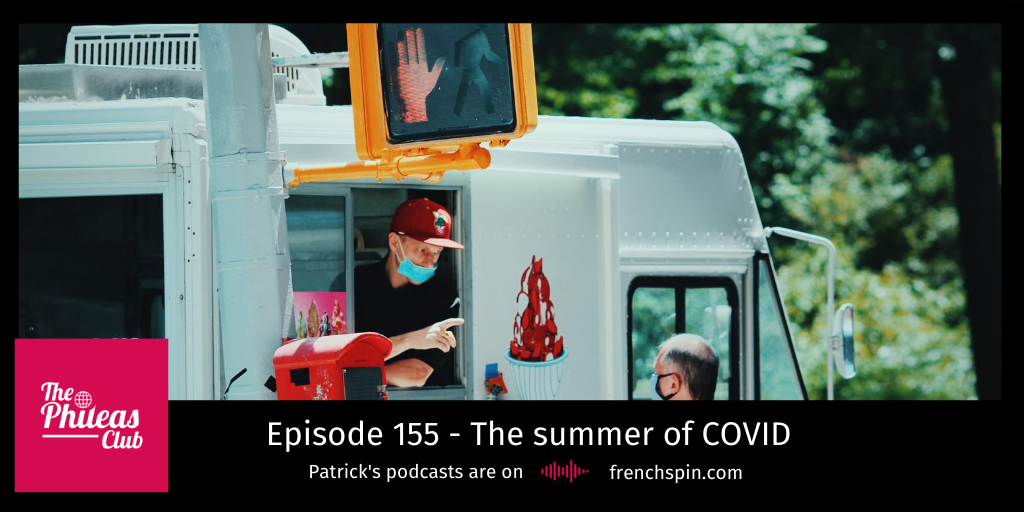
On this episode:
- The way the pandemic has progressed in the US
- The situation in Finland, France and Germany
- Elections in Germany
- The NBA does a great job!
- Alexey Navalny’s poisoning
- Polio and Bill Gates Conspiracies
- And more!
Links:
- 😎 Support the show at patreon.com/ThePhileasClub! 😎
- 🎧 You can subscribe via Apple Podcasts, Podcast Addict, Spotify, Google Podcasts, Pocket Casts, RSS, or download the MP3.
Hosts:
I was very pleased to hear your guest’s comments and to some degree support their take on events especially with Covid 19. I’m in the Houston area of the US. I’m a pediatrician. I think there’s a basic misunderstanding by many as to how viruses act among a susceptible population. Unlike a disaster like hurricanes, tornadoes, storms, etc., viruses don’t sweep through an area and leave. People are accustomed to getting out and recovering after a disaster has passed. As soon as we get out again, all those who were able to avoid the illness are exposed and recurrent waves of contagion occur. Comparing countries is probably not as valid as comparing different population densities and cultural habits. I think this is why Tony’s comments about different states/places handling the pandemic differently has some validity. The 4th of July in the US is Independence Day so we had a combined natural sense of holiday activity combined with the notion of freedom (“give me liberty or give me death” tradition) that led to a boom in exposure and 2-3 weeks later a boom in contagion. The bragging leaders in various cities saying they’ve controlled the virus having had an overwhelming contagion is specious. When the majority of the population has been infected the immunity afterward (? how many months) will reduce the subsequent waves of contagion. When the majority of the population develops immunity whether by having the illness or when vaccinated is when the contagion can come under better control. And by the way, while leaders can act smart and say proper things, I think you give much to much credit/blame to leaders over the issue. To me this is analogous to crediting the leaders for the economy. Politicians succeed and fade based on circumstances that are usually only mildly controllable.
I’m not sure I would agree on the politics having power thing. Sure they don’t have absolute control, but they do have immense influence. In the case of COVID, the argument that “the US is different” has its limits, and the way things spread there is so different from how it has spread everywhere else (in many very different countries) that I think it can be attributed to public messaging and policy. Saying politicians have little to no power is a very useful argument for those who say “it doesn’t matter anyway” and vote people like Trump in. It might not be absolute power, but there is still a lot of it and it does matter, and you do need to have competent, sometimes boring bureaucrats in office…
As to herd immunity, I will note that contagion alone will not get us there; we need something like 60% immunity for it to start working, and through 2020 we were still in the single digits, even with all the ways it affected our economies and way of life. So we can’t just let it spread and hope for immunity, we do have to take strong measures as we wait for a vaccine…
Hi again. By the way, I did not vote for Trump nor find him setting a good example. But, since my previous comment I enjoyed a recent report aired yesterday (9/8/20) on the PBS News Hour. The segment looked at the COVID-19 management comparing Sweden and Denmark. If you can access that I would recommend that particular segment. And I do believe that leaders have an influence but followers make the bigger difference.
Thank you.